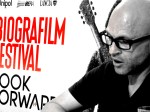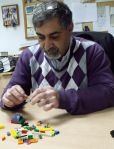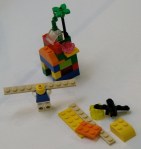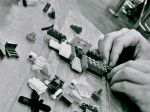Milena Kaneva is a smiling and bright person, a filmmaker and film director who in 2006 produced one of the most inspiring films about Burma, Total denial.
The main characters of her film are activists Ka Hsaw Wa and his wife, and they wanted to make the difference by documenting how Karen villagers had been treated in Burma. The case came from the building of a pipeline that Unocal, a former oil company, that was built next to the Andaman sea to connect Burma to Thailand: Karen villagers ‘who stood in the way to progress’ – to say it with the oil company’s managers words – have paid their opposition with all sort of human-right violations.
Ka Hsaw Wa engaged and led an 8 years lawsuit agains Unocal and 15 Karen vilagers sued Unocal for human-right abuses with the support of Burmese military.
This is an inspiring story, the story of the victory of Ka Hsaw Wa and the victory of Karen vilagers who have seen recognised their rights in an US court.
Milena has followed this story for 5 years, between 2000 – 2005. Milena’s career yet is not that of a ‘classic’ filmmaker or journalist: she started as an actress, but then her interest towards society and stories that can inspire people has taken the lead and, inspired by the Nobel Peace laureate Aung San Suu Kyi and lending the title of her book, she funded the Free from Fear Foundation. The foundation’s aim – as stated in the website ‘is to use the power of film, free media and other initiatives to educate and empower people about human rights and to denounce human rights violations everywhere. By telling the truth we remove the veil of fear.’
Something Milena already did and keeps doing, lending herself and her work to the cause of Burmese people and to those who are oppressed.
When She cames in, she is curious and excited – she immediately loved the concept of a LEGO based interview, and the whole interview had been a relaxed engaging and inspiring talk.
The filmmaker is a Tool. An interview with Milena Kaneva [+Video]
Deconstructing information: an interview with Slavko Martinov [+ Video]
‘I am not scared… I have a beer!’ he says as soon as we meet. He is surprised and enthusiast as he sees the bricks. He is Slavko Martinov, filmmaker who filmed and produced Propaganda [See previous Post]. I explain him that the method is not a psychoanalytic session, but a search for truth ‘Which is typically subjective’ he adds.
As a filmmaker who has been working hard on the issues of propaganda and information, my questions were simple in their constructions, to let Slavko’s views and ideas to emerge freely: What is Information? I ask.
He stays silent for a while and starts playing with the bricks. He turns all the bricks upside down.
All separated. All detached. All on the table. Then, when he’s finished, he starts talking:
‘All these pieces are information… If you ask me what information is, it really makes me think that if everything I have turned the other way was information as it’s presented, my natural instinct is to turn everything over and examine it from underneath, or sideways or back to front, or upside down… That’s how I get to the truth. I just don’t accept information as it’s given to me. So, if this is me, my idea…’ and he pics the human figure and shows me the flower on the head ‘this little flowering of an idea or the bloom of an idea is that to question everything, upside down… even if I was built up and passed of some information I have to ask, according to who, where the source come from, who benefits and why I have been given that structure of information… I would completely take it apart to examine it…’
Colour exists by itself. It’s the human being who needs colour. LegoView with G. Cagnazzo.
Gianni Cagnazzo is an Architect. But that’s not enough to fully catch his polyhedric and enthusiastic attitude towards his job and his passions. Gianni Cagnazzo is president of IEM (Indoor Environment Management) and ANAB (National Association of Bio-ecological Architecture), member of the International Academy of Colour, he is professor in bio-ecological architecture, colour design and humanisation of the built space, he gives lectures at various institutes, including ANAB IBN (Institut fur Baubiologie und Oekologie – Neuberern), UNITRE, University of Turin… Colour is his passion, therefore the question was certainly due: What is colour?
He knows how my kind of interviews work and he starts building. When he is done, he explains me his model.
Palestine from the Israeli Perspective: an endless list of missed opportunities
Ariel is an Israeli professional, holds an MBA and has degrees in sociology, anthropology and Jewish history. He was born in Argentina and has been living in Israel since 1993. We met in Tel Aviv, on a sunny day at the end of December 2011. After we talked about Israel, it was time for me to see Palestine with his eyes.
‘Build me Palestine’ I ask him.
‘Palestinians… Palestinians…’ he sobs while building his model.
When he finishes, he looks at me:
‘This man is the Palestinian… they have peace in their mind…’
I look at the model and in the attempt to get a full vision of it and to take pictures I turn it so that the minifig could face me, but Ariel stops me. I am puzzled and ask ‘Why?’
‘This man is the Palestinian and he is looking toward the opposite direction, opposite to the way… They have peace in their mind, symbolised by the green bricks…’ he shows me ‘…they are dreaming about peace… No’ – he suddenly stops and corrects himself – ‘it’s not peace, they are dreaming about normalisation and about a free state, it’s not really peace… It’s like Egypt, we have peace with Egypt since 1981, it’s been 30 years. But that’s not real peace though. 10 years ago I went to Egypt, it was in 1991 and I didn’t feel peace like I do here, they don’t like us, let’s say. You won’t see Egyptians here. They don’t come here…’
Palestine’s existence depends on respect and on our children
I have met Dr Rauf Azar at Beit Sahour medical centre. He is the director of the clinic since 2005. The clinic is part of the Health Work Committees in Palestine, a no profit NGO which main goal is to provide health services to the inhabitants of occupied Palestinian territories, with a special focus on patients from marginalised groups, like poor people, women, children and people with special needs. ‘This centre was founded as a clinic’ Dr Azar says, ‘then it expended and became a day care surgery centre and we are on our way to establish here a small hospital for general and reconstructive surgery’. The reconstructive surgery will be the first hospital dealing with reconstruction and it will be the first one in the Palestinian territories and it will be developed in partnership together with the Department of Plastic and Reconstructive surgery in Bari (Italy) and with prof. Michele Pascone.
Then I go straight to the point, and ask Dr Azar What is Palestine?
He does not say a word for a while. Then he looks at the bricks and without even touching them, he firmly says ‘Palestine is nothing here…’.
The LEGO SERIOUS PLAY Facilitators’ meeting
LSP is a tool which has been developed at the end of the ’90s at IMD in Switzerland based on the studies of Johan Roos and Bart Victor who introduced the “serious play” concept and process as a way to enable managers to describe, create and challenge the views of their business. The Serious Play approach was then further developed and brought into LEGO SERIOUS PLAY by Robert Rasmussen, who worked at LEGO at that time, and who is the main architect of the LSP methodology and one of the most inspiring and LSP enthusiast.
Insights on the Method: building models to explore ideas
LEGO-interviews are an innovative investigative method to delve into reality developed by Patrizia Bertini starting from the basic theoretical principles of constructionism and from a deep knowledge and experience with underlying LEGO® SERIOUS PLAY® (LSP).
This interviewing method has been developed to challenge traditional journalism, as an attempt to explore the world through other people’s perception of reality and their views.
Journalistic interviews are generally based on well defined dynamics, on journalists’ capacity and on a constant tension between the interviewer and the interviewees. There is a large literature about this and there are experts who specifically train politicians and influent public people on how to handle and conduct interviews in order to dominate the conversation and to provide a good and safe image of themselves. And there are also a number of books and essays that teach journalists how to make effective interviwes. Everything is codified, recognisable and known.
LEGO-interviews’ challenge is that of radically changing the psychological and relational dynamics between the journalist and the interviewee so that the cognitive processes underlying the interaction are completely different: the interviewer and the interviewee are not anymore opponents but they collaborate, they literally construct the interview together with an original process that produces unexpected contents which most the time surprise the interviewees too.
The poetic justice of a lost Brick in Jerusalem
I was walking around Jerusalem’s bus station looking at the stalls and the shops when this young man stops me to show me his production. He is kind, he asks me where I am from, we start talking. ‘So, you are a designer, a creative person right?’ I ask him. He nods proudly. ‘Would you like to be part of an experiment with this…’ I ask him while showing him the LEGO bricks. He is puzzled and at the end he accepts.
We go to a cafe and I do not waste time: ‘What is Israel?’ He stares at me and at the bricks. ‘With this pieces it sounds hard…! Should it be the present or what…’. I insist not giving him any clue. ‘Show me what Israel is’. He starts talking, and I invite him not to talk, but to build. He is uncomfortable. He is out of his comfort zone. Shortly he says he is done.
The Unbearable Lightness of Ideas: LWs goes to University!
“Creativity is thinking up new things. Innovation is doing new things” Theodore Levitt
The last months have been devoted to innovation. Time for creativity and innovation is necessarily made by questions looking for solutions and the apparent quietness of this space is filled by innovative actions taking place in unexpected places, with unimagined forms and surprising people.
LegoViews is a growing method, proving itself to be not only flexible, but integrated and integrable into different contexts with diverse aims.
The current experiment is taking place in Italy: regardless the economic situation, that country can still be a place open to real innovative approaches and able to recognise, capitalise and be enthusiast for new ideas.
And the Italian Academia can be a free environment where a real problem could turn into an amazing opportunity: just put together an innovative university department, like the Architecture department of University of Ferrara, a team coordinated by Prof. Marcello Balzani, a cutting-edge course lead by prof. Carlo Bughi and supervised by Prof. Beppe Dosi, and what you get is an explosive situation where ideas happen and changes take place.








![Hands on! LSP Faciitators in an LSP workshop! [Photo by Lucio Margulis] Hands on! LSP Faciitators in an LSP workshop! [Photo by Lucio Margulis]](https://legoviews.com/wp-content/uploads/2013/04/564754_10151530155917398_565878055_n.jpg?w=150&h=112)



